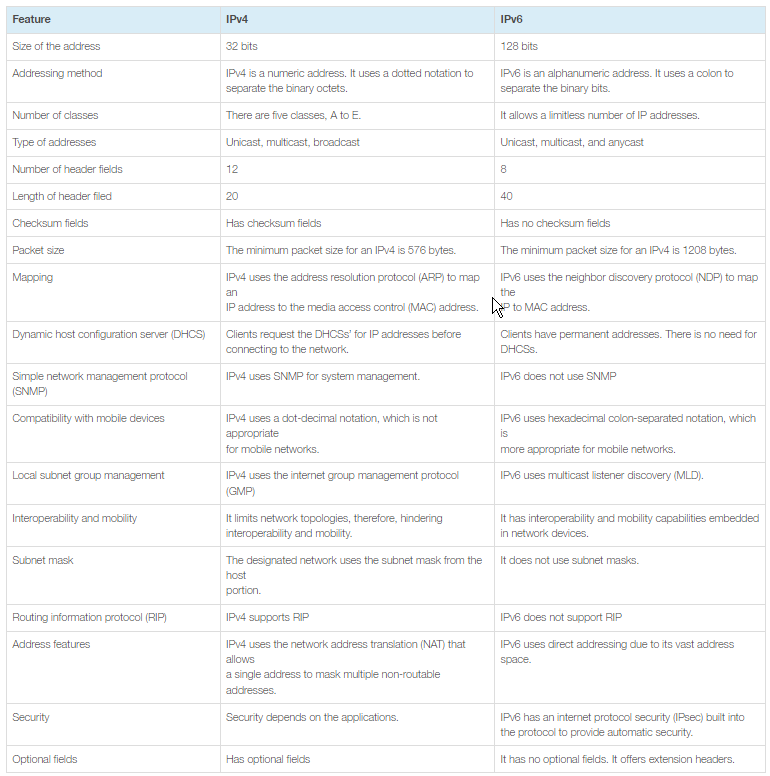
I kept hearing for years that we were running out of IPv4 addresses, but it seems they are still quite popular. I get requests for /24 blocks nearly every day.
The IPv4 address pool has been effectively exhausted for new allocations, but a robust secondary market keeps them available for purchase or lease, driven by ongoing demand and slow IPv6 adoption. Below, I’ll break down the current state of IPv4 | IPv6 availability.
Current State of IPv4 Address Availability
The global pool of unallocated IPv4 addresses, managed by the Internet Assigned Numbers Authority (IANA), was depleted in February 2011. Regional Internet Registries (RIRs) have since exhausted their free pools:
APNIC (Asia-Pacific): April 2011 | RIPE NCC (Europe, Middle East): September 2012 | LACNIC (Latin America): June 2014 | ARIN (North America): September 2015 } AFRINIC (Africa): Still has a small pool (about 10 million addresses or 0.6 /8s as of May 2025), but it’s nearly depleted and restricted to small blocks (/24 to /22).
Since 2019, RIPE NCC has issued no new IPv4 allocations, only distributing small blocks (e.g., /24, 256 addresses) from returned or recovered pools after a six-month quarantine. These are insufficient for large-scale needs.
Secondary Market and Transfers:
With no new allocations, IPv4 addresses are now primarily obtained through a secondary market where organizations buy, sell, or lease blocks. This market is facilitated by brokers, auctions, and platforms like IPv4.Global, IPXO, and Brander Group.
In 2024, Brander Group reported 724 global IPv4 transfers totaling 3.4 million addresses, indicating a vibrant market despite a 10% decrease in transferred IPs compared to 2023.
Smaller blocks (/24 to /19, i.e., 256 to 8,192 addresses) are in high demand, especially by regional ISPs, hosting providers, and AI-driven data scraping firms. Larger blocks (/16 and above, 65,536+ addresses) are scarcer and do command a premium.
Demand Drivers:
Despite IPv6’s virtually unlimited address space, IPv4 remains critical due to compatibility with legacy systems, ease of implementation, and slow IPv6 adoption (global adoption is ~40% as of 2025).
Hosting providers, ISPs, and cloud providers (e.g., AWS, which controls ~1.8% of IPv4 addresses) continue to acquire blocks to support new services and customers.
Why We Are Seeing /24 Blocks Offered:
The prevalence of /24 blocks (256 addresses) in web hosting offerings reflects their popularity. They’re small enough for smaller businesses or hosting providers to afford and manage, yet sufficient for many hosting needs (e.g., virtual machines, websites).
These blocks are often leased or resold from larger holdings fragmented into smaller subnets to meet market demand. The supply of /24s is relatively stable compared to larger blocks, but inventory is tightening.
Price Outlook for 2025:
Analysts predict modest price increases (5–10%) for smaller blocks (/24 to /19) due to tightening inventory.
Larger blocks may see sharper increases (10–20%) as their availability drops by 20–30% by 2026.
Some sources suggest prices could soften if IPv6 adoption accelerates or economic fluctuations reduce demand, but IPv4’s relevance is expected to persist for at least 5–10 years.
Why the Narrative Shift?
I have noticed less mention of IPv4 exhaustion recently because I suspect focus has shifted from “running out” to “managing scarcity.” The secondary market, address recycling, and technologies like Network Address Translation (NAT) have extended IPv4’s lifespan, reducing alarmist rhetoric. NAT allows multiple devices to share a single IPv4 address, supporting over 30 billion devices on just 3 billion advertised IPv4 addresses. Meanwhile, the market’s maturity (e.g., auctions, brokers) has normalized trading, making /24 blocks readily available from hosting providers. However, this doesn’t mean supply is infinite—scarcity persists, driving prices and market activity.
Critical Considerations
Market Bias: High prices favor large players (e.g., cloud providers like AWS), potentially stifling smaller businesses and innovation.
IPv6 Transition: While IPv6 adoption grows, compatibility issues and infrastructure costs slow its rollout, keeping IPv4 dominant.
Recommendations for Web Hosting Providers
Leasing /24 blocks is ideal for short-term needs or flexibility (e.g., $1,500/year), while buying suits long-term investments (e.g., $10,000 for a /24) with resale potential.
Invest in dual-stack (IPv4/IPv6) infrastructure to future-proof services, as IPv6 adoption will eventually reduce IPv4 demand.

BROUGHT TO YOU BY PROLIMEHOST
We’ve been in the web hosting industry for over a decade, helping hundreds of clients succeed in what they do best and that’s running their business. We specialize in Virtual Private Servers (VPS) and dedicated servers, with data centers in Los Angeles, Denver & Singapore.
VPS SERVICES: LIGHTNING FAST SSD VIRTUAL SERVERS
Our Virtual Private Servers all feature high performance Xeon processors and SSD storage in a RAID10 configuration to optimize your server’s performance, which dramatically enhances visitor experiences on your site.
That speed is backed by unparalleled 24/7 support, featuring both outstanding response AND resolution times to maximize your uptime.
Now is the time to join the ProlimeHost virtual private server revolution.
DEDICATED SERVERS: BACKED BY A 99.9% SLA NETWORK UPTIME GUARANTEE
We only use enterprise-class hardware in our dedicated servers and offer a four (4) hour hardware replacement. Throw in IPMI for remote management, support for public and private networks, free operating system (OS) re-installs, and SATA, SAS & SSD (including NVMe) storage. Call 1-877-477-9454 or contact us. For everything from gaming, AMD and GPU servers to cheap dedicated servers, we’re here to help.
ASIA OPTIMIZED NETWORK: IMPROVING CONNECTION SPEED AND QUALITY
Procuring an Asia optimized server improves the connection speed and quality between the server and the users in Asia or China. This can reduce latency, packet loss, jitter, and bandwidth issues that can affect the performance and reliability of the server and the applications hosted on it. For more information, please call 1-877-477-9454 or contact us.


